June 23, 2025 | 09:22 GMT +7
June 23, 2025 | 09:22 GMT +7
Hotline: 0913.378.918
June 23, 2025 | 09:22 GMT +7
Hotline: 0913.378.918
On June 19, DanViet newspaper in collaboration with the Department of Livestock Production and Animal Health (Ministry of Agriculture and Environment) organize an online discussion: "African swine fever vaccine: What to do to make farmers trust and use it".
Phan Quang Minh, Deputy Director of Department of Livestock Production and Animal Health says, “Since the African swine fever (ASF) vaccine was officially recognized and licensed for circulation in May 2022, its presence is now widespread across the country and the vaccination is progressing at a steady pace”.
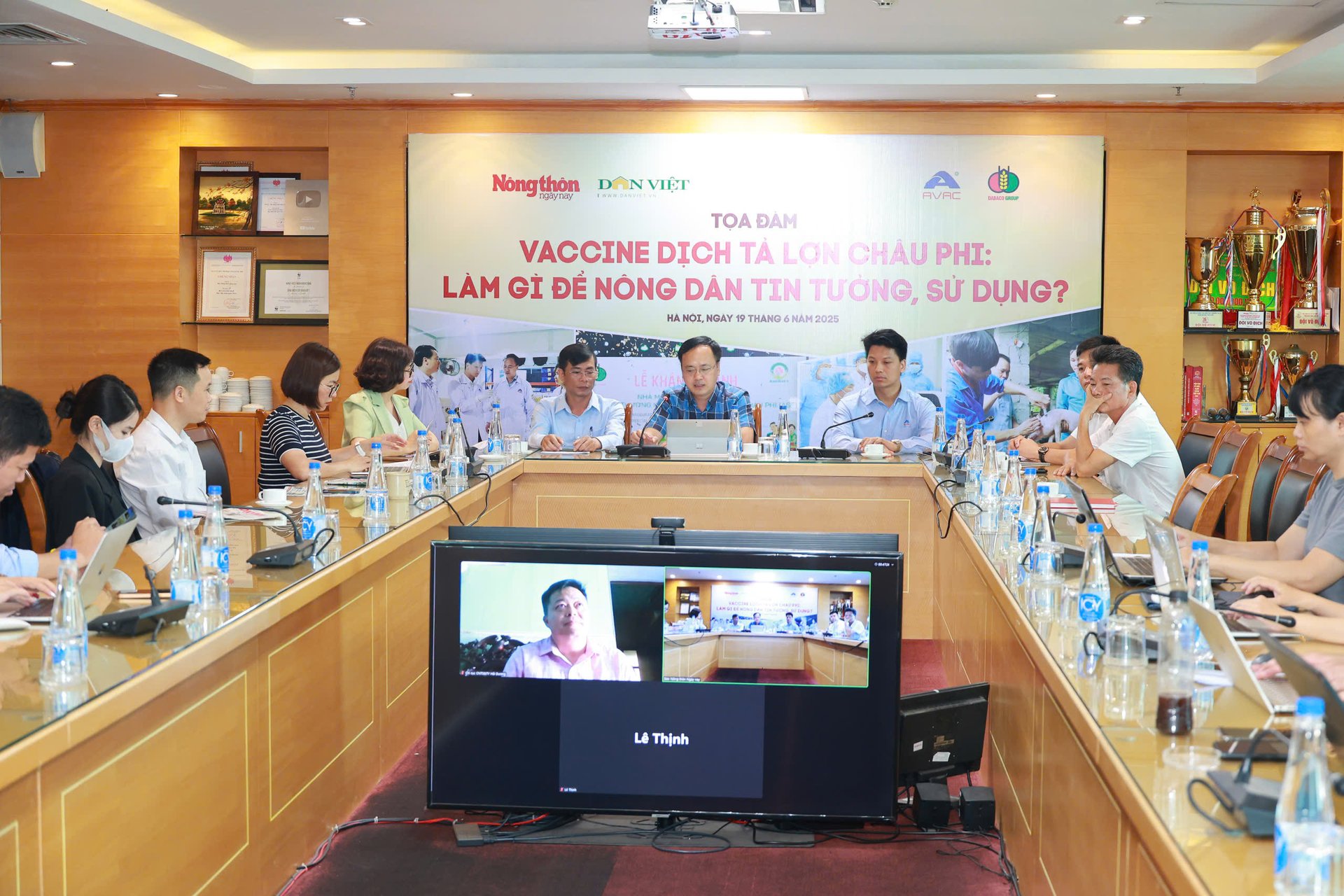
The online discussion: “African swine fever vaccine: What to do to make farmers trust and use it?” took place on June 19, in Hanoi. Photo: Hong Tham.
According to preliminary statistics, nearly 7 million doses of ASF vaccine have been produced, of which more than 4 million doses have been supplied domestically for vaccination and nearly 1 million doses have been exported to a number of countries to support epidemic prevention. Approximately 35,000 livestock households throughout 45 provinces and cities have been vaccinated against ASF.
“The recorded and reported outbreaks from 2022 to the present have all occurred in unvaccinated pig herds. This confirms the effectiveness of the ASF vaccine and proves a big step forward for the Vietnamese livestock and veterinary industry,” says Deputy Director Phan Quang Minh.
The Prime Minister and the Ministry of Agriculture and Environment have issued many documents directing localities to push ASF vaccination and strengthen disease prevention. However, in reality, localities still show low vaccination rates.
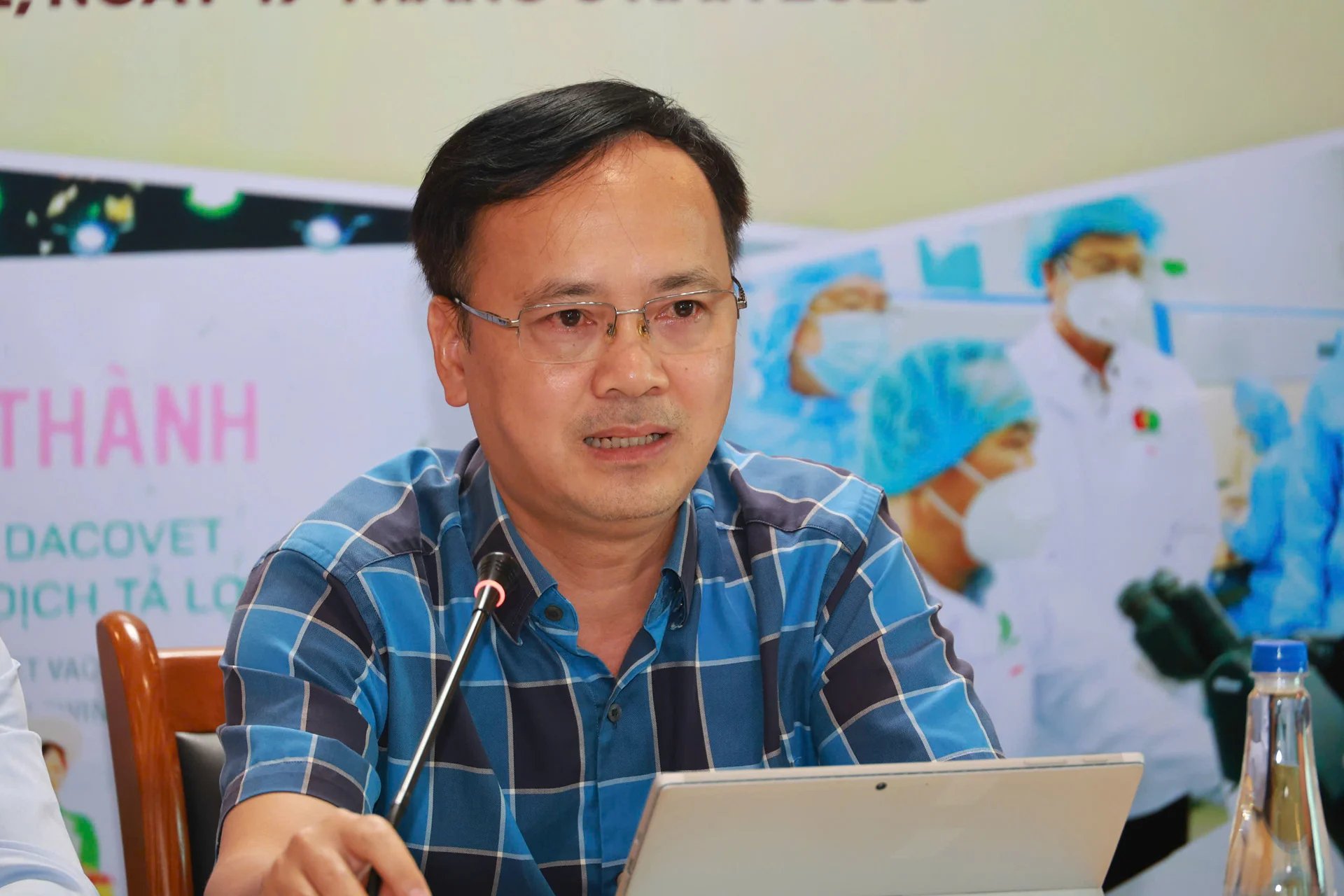
Phan Quang Minh, Deputy Director of Department of Livestock Production and Animal Health. Photo: Hong Tham.
Deputy Director Phan Quang Minh believes that there are three main reasons for this situation, with the awareness of farmers being the prime factor. Many households do not clearly realize the danger of ASF or the role of vaccines in the process of protecting pig herds.
The second reason is that information about vaccines and their effectiveness has not been fully and clearly communicated to the people. Many people are still concerned about the protection ability of vaccines after injection. Providing transparent and specific information about vaccine effectiveness is thus a key factor in strengthening farmer’s trust. The last issue concerns the price of vaccines. One dose of vaccine currently costs roughly VND 60,000, which is also a big obstacle for a number of livestock households, especially small-scale ones.
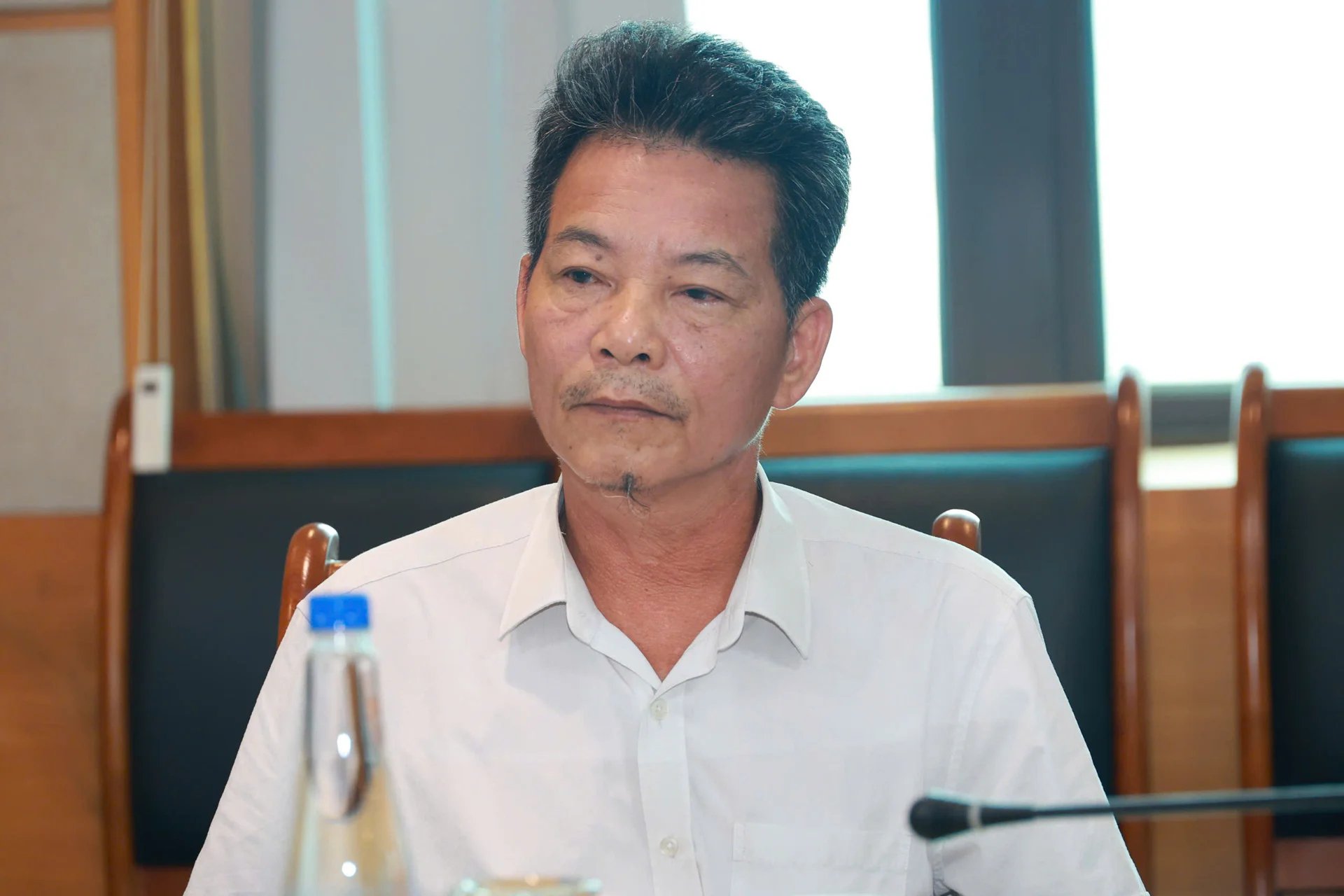
Nguyen Van Thang, a representative of Hoa My Livestock Cooperative (Hanoi), says that ASF is the biggest threat to pig herds, leaving farmers "empty-handed" if outbreaks occur. Photo: Hong Tham.
From the perspective of a manufacturing enterprise, Nguyen Van Diep, General Director of AVAC Vietnam Joint Stock Company deems the current implementation of vaccines into practice ineffective, mostly due to the cautious nature of livestock farmers towards a new product.
Vu Dang Dong, Director of Dabaco Veterinary Diagnostic Centre shares the same sentiment. “Farmers today still have many concerns and reservations toward the ASF vaccine. Most of them are waiting for the response from large enterprises before making a decision, which is completely understandable,” he says.
“If there is a good vaccine, farmers will use it immediately. However, what farmers need now is trust. It is not entirely correct to say that small farmers are waiting for large farmers to use the vaccines first. Even large farms are still waiting for clear confirmation from manufacturers and management agencies on the vaccine efficacy,” says Nguyen Van Thang, representative of Hoa My Livestock Cooperative (Hanoi).
According to the leader of Department of Livestock Production and Animal Health, Vietnam possesses three types of vaccines licensed for commercial circulation. There have been some initial export orders of these vaccines to some Southeast Asian countries.
“Before being licensed for circulation, the vaccines all went through a rigorous evaluation process in accordance with regulations, even more stringent since this is the first time ASF vaccines have been produced in Vietnam,” says Deputy Director Phan Quang Minh.
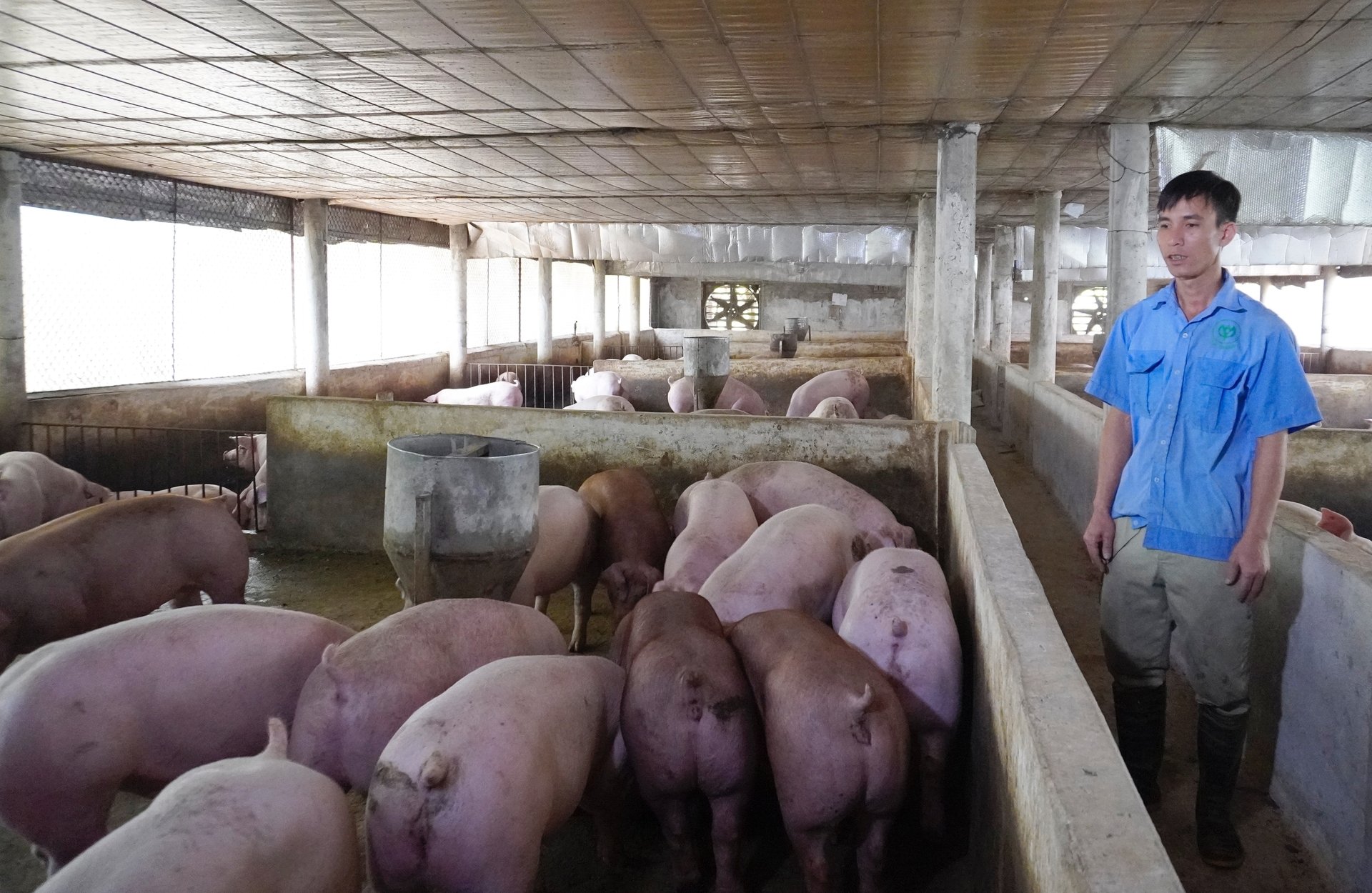
A small-scale pig farmer in Phu Tho province has used African swine fever vaccines produced by AVAC Vietnam Joint Stock Company to vaccinate his pigs. Photo: Hong Tham.
The evaluation results show that all types of vaccines are safe and do not cause major impacts on animal health. In terms of protection effectiveness, according to general regulations for all types of vaccines, the minimum protection rate must reach 80%. Most of Vietnam's ASF vaccines have achieved very high protection levels, up to 97 - 99% during the evaluation process. Not only are they used domestically in a careful manner, Vietnam's ASF vaccines have also gained the trust of the international community.
In order to increase farmers' confidence in the ASF vaccine in the future, it is necessary to further promote communication and transparent information about its effectiveness. Relevant agencies must provide complete, clear and detailed data related to the vaccines’ protective effectiveness and safety value, helping farmers feel secure in using them during production.
Translated by Samuel Pham
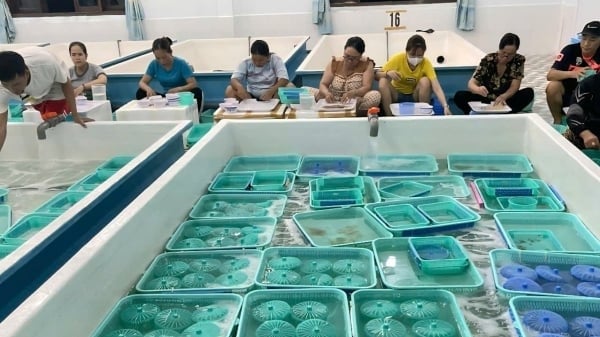
(VAN) Khanh Hoa and Phu Yen continue to strengthen inspection and control of lobster seed circulation in the area, and strictly handle violations.
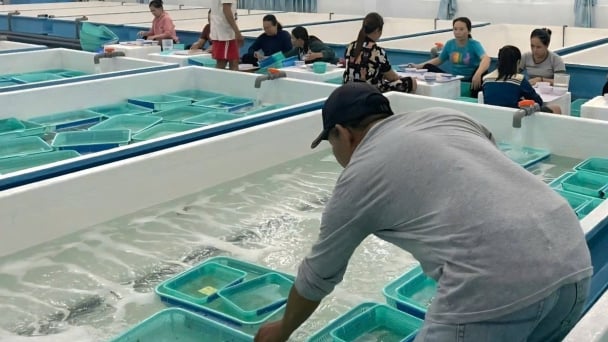
(VAN) Phu Yen and Khanh Hoa recently discovered many batches of lobster seeds of unknown origin. The authorities quickly moved and handled it as per regulations.

(VAN) Thanks to Ninh Thuans’s digitization of shrimp seed quarantine declarations, the procedures for payment and result reception are simpler and quicker.
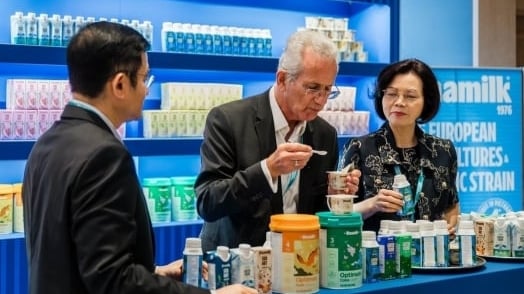
(VAN) In Amsterdam, the Netherlands, the 18th Global Dairy Congress 2025 took place from June 18-19, where Vinamilk won many grand awards.
![Turning wind and rain into action: [11] Ten years before storms, after every harvest](https://t.ex-cdn.com/nongnghiepmoitruong.vn/608w/files/news/2025/06/20/z6704423696987_15fd32ffc26d590d204d520c9dac6786-nongnghiep-140922.jpg)
(VAN) With WeatherPlus, every raindrop and every breeze carries a message. And if we learn to listen, the fields will no longer live in fear of the weather.
![Turning wind and rain into action: [10] Advancing accessible climate services for farmers](https://t.ex-cdn.com/nongnghiepmoitruong.vn/608w/files/linhnhp/2025/06/20/1911-z6704423696987_15fd32ffc26d590d204d520c9dac6786-nongnghiep-161854.jpg)
(VAN) Not only does it help farmers 'avoid droughts and rains,' the development of agricultural climate services also enhances their ability to proactively adapt to a rapidly changing climate.